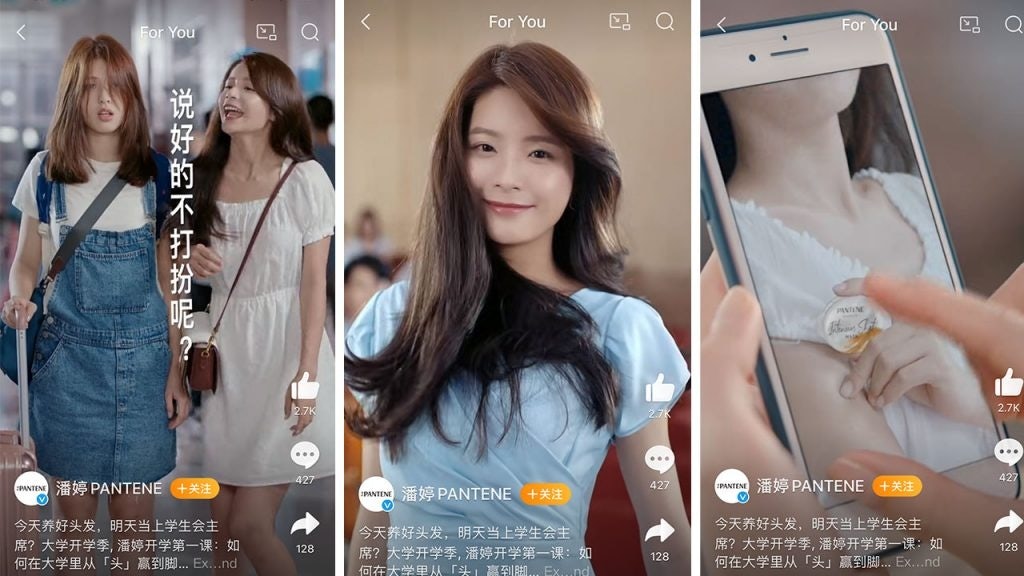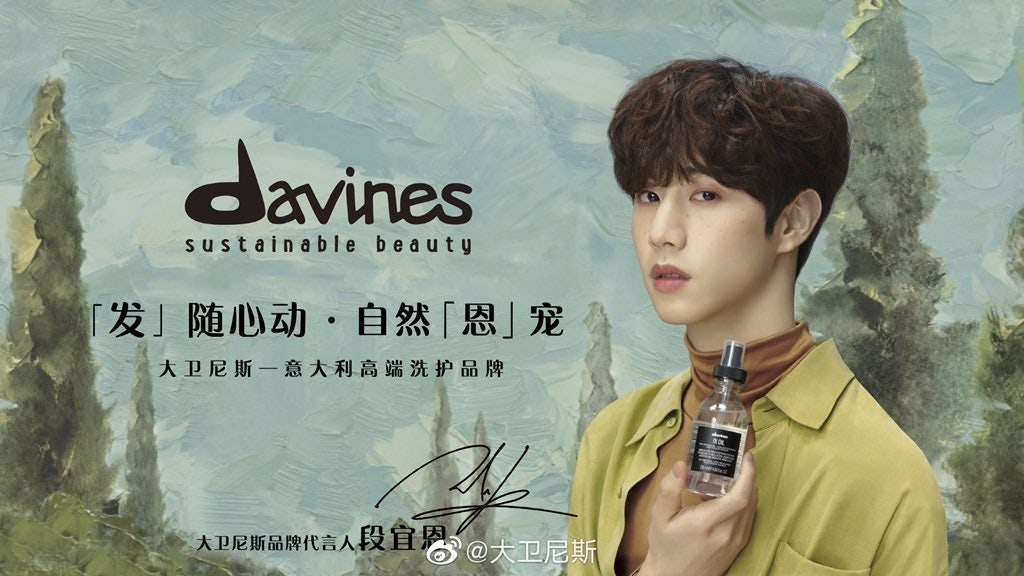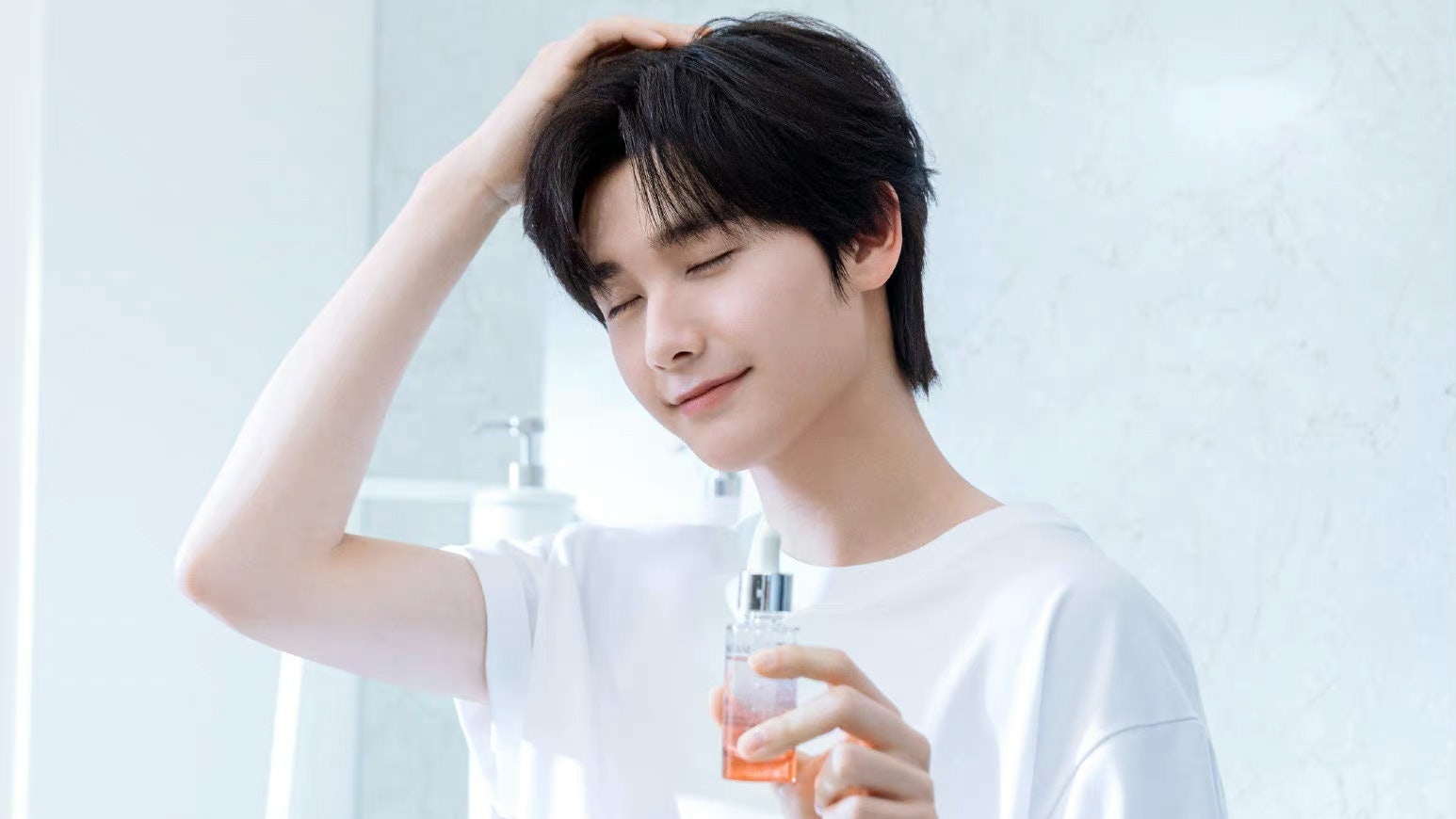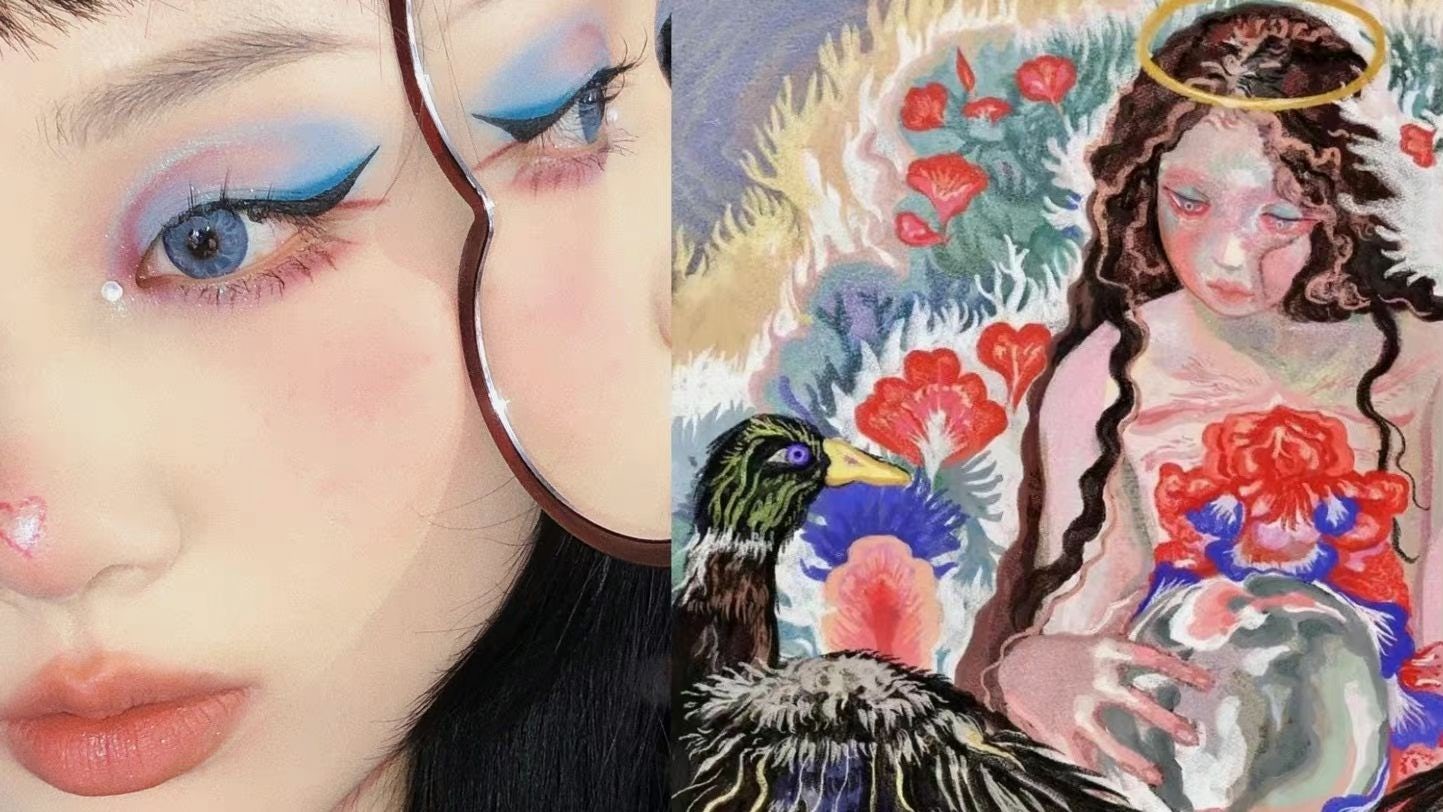The “skin care-ization of hair” is beauty’s latest trend, thanks in part to influencers, beauty gurus, and media personalities educating their followers about the key ingredients found in hair care products. These include the likes of haircare blogger @Taoyii who has 402,000 followers on Xiaohongshu or @瑶三岁Dazzling who shares hair care, braid, and skincare tips to her 559,000 fans.
Though hair has for years been overshadowed by categories like skincare, color cosmetics, and fragrance, it’s now in the spotlight. Consumers are upgrading their haircare journey and investing in natural and organic shampoos, conditioners, hair oils, and scalp serums in a shift extending beyond Western markets: organic beauty and mineral-based cosmetics have a long history in China, so it comes as no surprise that younger audiences are embracing the hype.
A report published by Tmall and CBNData highlights that demand in China for premium shampoos (categorized as those priced above 18.20) grew faster than that for mid-market rivals. Premium conditioners have also shown incredible results, growing twice as fast as mass haircare brands. Due to high demand, Alibaba’s cross-border e-commerce platform Tmall Global even created a designated category for scalp treatments. Scalp care-related search terms increased twelvefold in 2021 from the year prior; during the same period, sales of international scalp care products grew by 340 percent, while sales of essential oil ampoules were up 170 percent, according to Alizila.
The premiumization of haircare in China brings unique opportunities, which will not only allow beauty brands to up their bottom lines but widen their customer bases. For starters, luxury brands with haircare lines (such as Ralph Lauren, Salvatore Ferragamo, Tom Ford, and Burberry) can now look beyond their target audience and reach non-prestige beauty shoppers and middle-market consumers alike. By converting customers into brand loyalists, brands could look to enticing them to look beyond personal care products and entry-level luxury items toward higher-value premium products.
As with other categories, problem-solving haircare is in high demand. Hair loss is one such problem: in 2019, one out of six Chinese people, or roughly 250 million individuals, suffered from alopecia, hence the growing popularity of hair growth serums, scalp care oils, and vitamin-infused shampoos.
Made-to-order and fully personalized routines are also on the rise, while natural, organic, paraben and sulfate-free are all making appearances on social media channels and livestreams. Naturally, key players in the market took note of younger shoppers’ digital habits and have shaped their strategies around aggressive digital marketing campaigns and collaborations with top B2C platforms.
For instance, Pantene partnered with ad agency Grey Hong Kong for its Freshmen Fresh Look campaign, which encouraged freshmen to revamp their look. A Douyin video featured Lori and Pan, two friends who shine in their freshman year thanks to their beautiful hair. The digital marketing campaign also engaged university-aged influencers who talked about how great hair is a game changer.

As with other beauty categories, brands are snapping up KOLs. Kérastase appointed actress Janine Chang its brand ambassador. Aussie, a brand manufactured by Procter & Gamble, turned to influencer marketing with Chinese idol Cai Xukun, whereas Davines selected K-pop sensation Mark Tuan as its new face.

Other leading brands use Alibaba’s Tmall Global to engage younger consumers, with rewarding results. During the first three days of the 11.11 shopping extravaganza, the gross merchandise value (GMV) generated by hair growth products increased 127.6 percent year-on-year among Millennial and Gen Z buyers, as per data from Alibaba’s online marketplaces. Meanwhile, growing demand for haircare products and the premiumization of the Chinese market have buoyed several niche premium brands; Olaplex mentioned in its 1.55 billion initial public offering that the strategic partnership with Tmall Global remains a priority for the future.
Moving forward, haircare brands should prioritize the delivery of in-person VIP beauty experiences and personalized customer interactions. A strong focus on partnerships with key B2C e-commerce platforms will fast-track business growth and create new revenue channels, but as the market becomes hotter and more competitive, brands will need to do more to stand out from the crowd.

